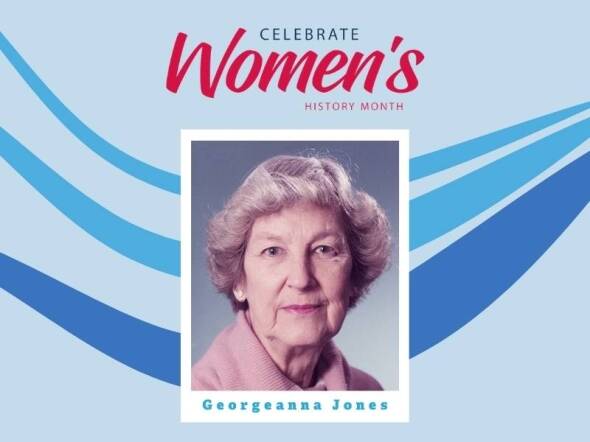At RMA, we are celebrating Women’s History Month by shining a spotlight on women who have made contributions to the fields of science, technology, and medicine. Our second spotlight is on Georgeanna Jones, who had an indelible impact on the In Vitro Fertilization (IVF) industry in the U.S.
Dr. Jones was one of the first reproductive endocrinologists – and one of the first female reproductive endocrinologists – in the country, who with her husband Howard Jones founded the country’s first IVF clinic in Norfolk, Virginia in 1979. That clinic was the Jones Institute for Reproductive Medicine.
Dr. Jones and her husband, another major IVF pioneer, come to practice at Eastern Virginia Medical School in 1978. They founded the clinic at the school the next year and began trying to create the country’s first “test-tube” baby. By 1981, on their 41st attempt, the Jones’ helped make possible the birth of the first IVF baby in the U.S., Elizabeth Carr. The medical breakthrough ushered in a new era for reproductive medicine in the country and led to an influx of doctors to Virginia hungry to learn from the couple.
Born in Baltimore, Maryland in 1912, Dr. Jones was the daughter of an OB/GYN who delivered her future husband, Howard. She pursued her medical degree at John Hopkins University and joined the faculty at the university’s school of medicine. She became a behind-the-scenes leader there, teaching, doing research, and ultimately, helping establish the country’s first division of reproductive medicine there in 1939.
After news spread of the word’s first IVF birth in the UK in 1978, a former patient of Dr. Jones sent the doctor and her husband a $5,000 grant and a blessing to open their own clinic and try to create this country’s first IVF baby. So they did.
Under the Jones’, the institute was responsible for almost singlehandedly shaping the origins of fertility science in the U.S., discovering more firsts after the birth of Carr. The institute conducted groundbreaking research into the use of hormones to grow multiple follicles for use in Intrauterine Insemination (IUI) and IVF, pioneered embryo freezing and Intracytoplasmic Sperm Injection (ICSI) – one of the most important industry advances for male infertility – and did some of the remarkable early work around Preimplantation Genetic Diagnosis (PGD), which today helps women deliver a baby free of genetic disease or abnormality through IVF.
Dr. Jones died in 2005 at the age of 92, having inspired generations of women in science and medicine.
